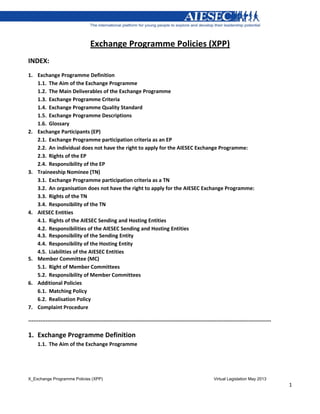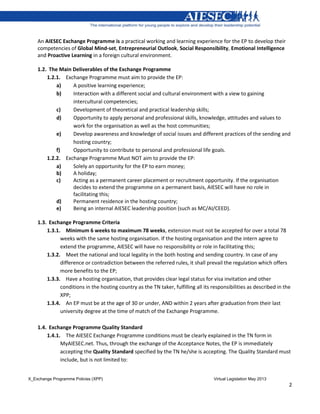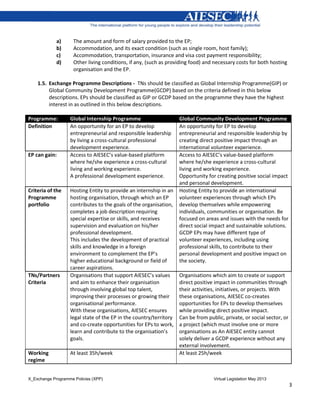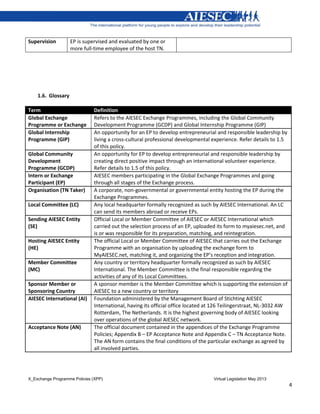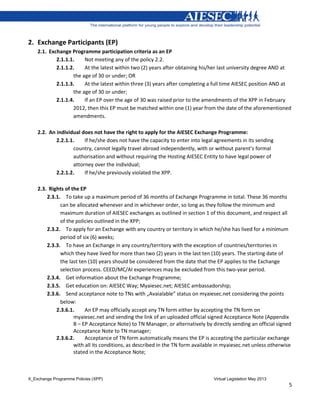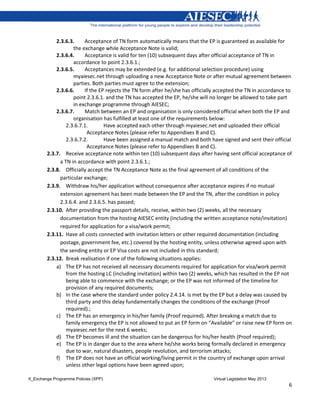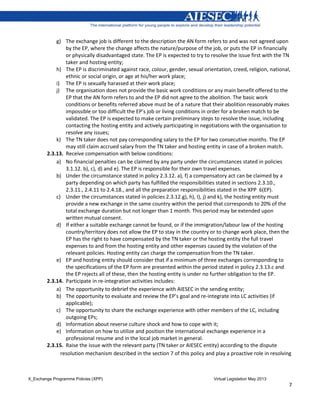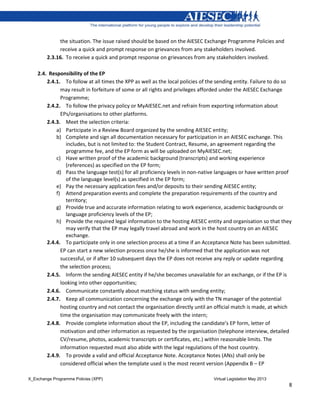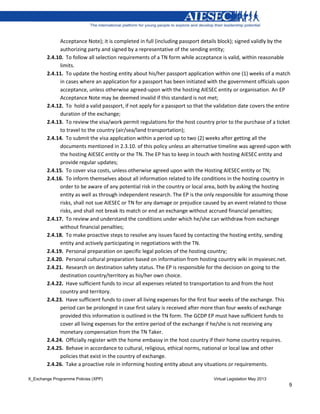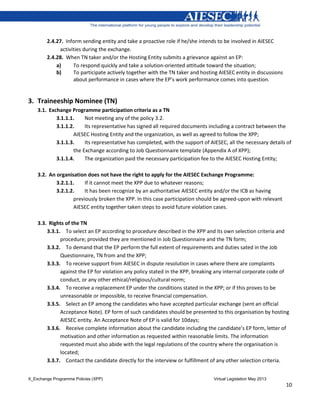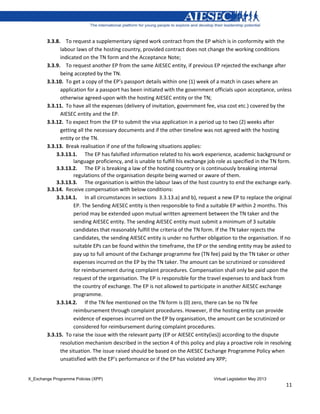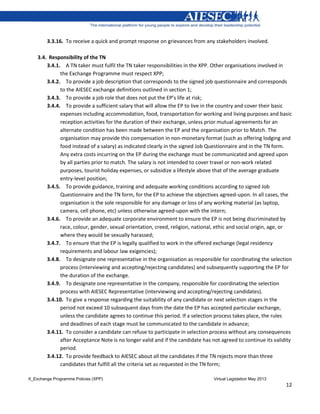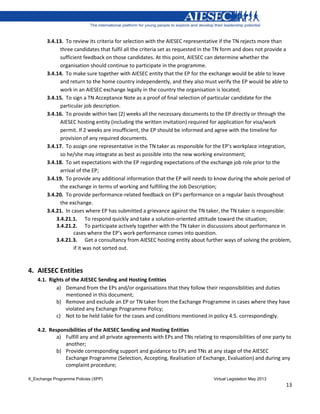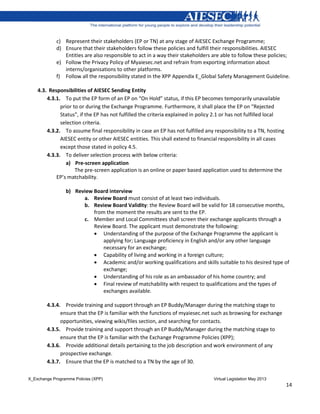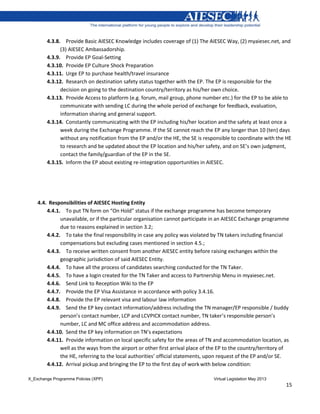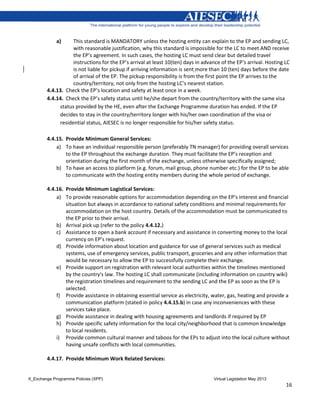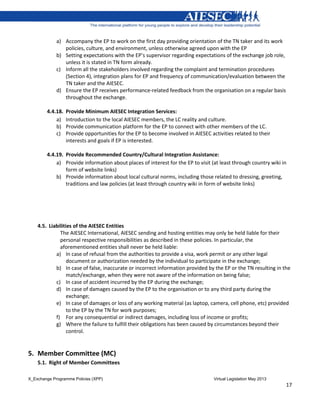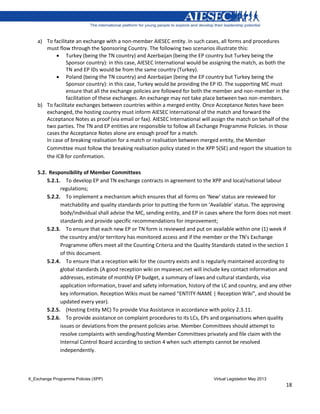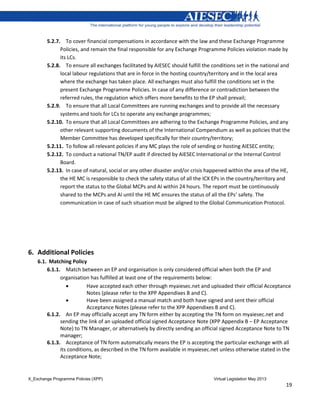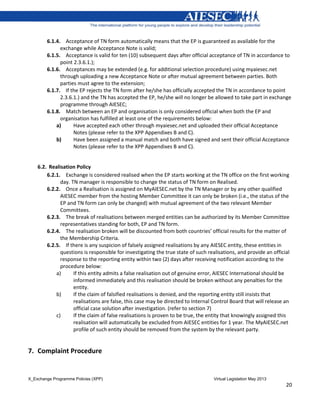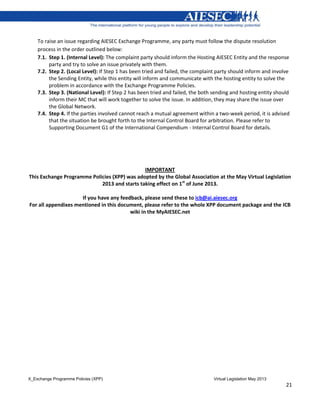The document outlines the policies for AIESEC's Exchange Programme. It defines key terms like Exchange Participant (EP), Traineeship Nominee (TN), rights and responsibilities.
Some key points:
- The aim of the Exchange Programme is to provide EPs with a positive international learning experience to develop skills like leadership, social responsibility through working/volunteering.
- EPs must be aged 30 or under and within 2 years of graduating. They have rights like accepting placements, getting documentation for visas. Responsibilities include following programme rules.
- TNs are hosting organisations. They must provide legal status and supervision for EPs.
The document also describes the different programme types (Global Internship
